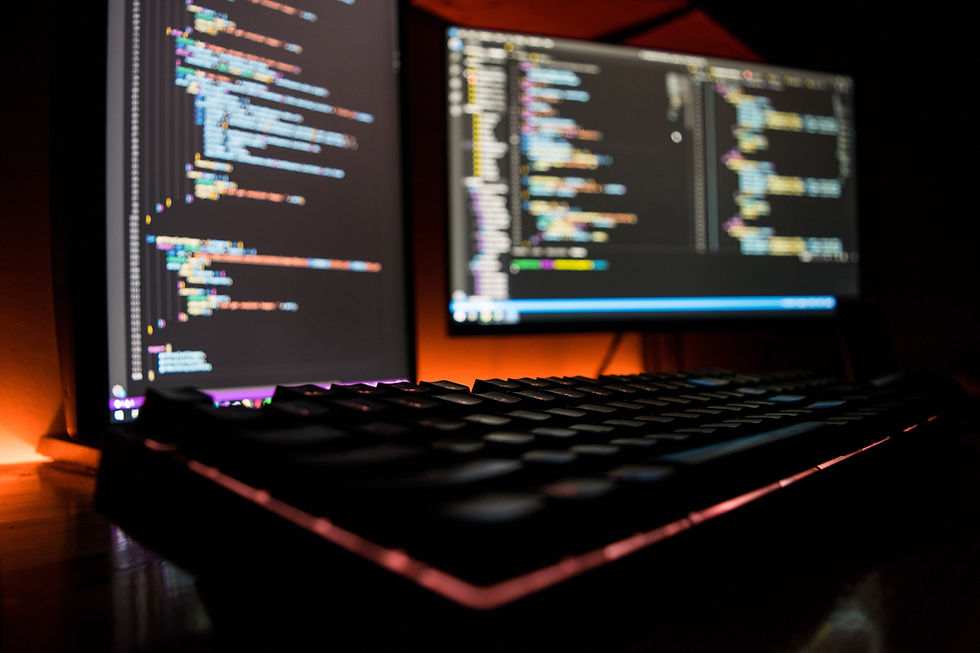The engineer's role in the Age of AI
- Vincent Picerno
- Apr 25
- 3 min read
Introduction
Many years ago, as a young software engineer, I took immense pride in being able to recite the intricacies of a library, troubleshoot bugs in complex functions, and optimize code for seamless performance across diverse environments. Back then, mastery was defined by your ability to memorize, quickly recall solutions, and demonstrate deep familiarity with tools and programming languages. Engineers stood out by their technical expertise, their ability to apply it effectively under pressure, and their knack for solving problems at an incredible pace and scale.
Fast forward to today, and the landscape has changed dramatically. With AI now handling many of the repetitive and routine aspects of coding, the role of the engineer is no longer defined by how many languages they can master. Instead, that mental bandwidth is freed up to focus on asking the right questions, tackling more complex challenges, and bridging the gap between business goals and technical possibilities.
This transformation doesn’t make engineering any less exciting or important—it makes it even more critical.
The Shift: The Engineer goes Upstream and AI becomes the Partner
AI empowers engineers to move upstream by providing tools that help them better understand and address client needs early in a project. With these insights, engineers can collaborate more effectively and innovate with greater precision. Rather than simply executing predefined tasks, engineers now become strategic client partners, actively shaping solutions from the outset.
AI has taken over many of the repetitive tasks that once defined our work, transforming itself into the engineer's partner. Need boilerplate code? AI generates it in seconds. Looking to troubleshoot or optimize a function? AI tools suggest improvements based on best practices and real-time analysis.
This isn’t a threat to engineering; it’s a revolution. AI frees engineers from the time-consuming details of rote coding, allowing them to focus on more impactful, creative work. And with this shift comes a new set of challenges and opportunities: instead of asking, “How do I write this code?” we now ask, “What problem does this code solve?
Context Over Code: The New Skillset
In this new world, engineers must possess something machines can’t replicate: contextual understanding. While AI can mimic contextual understanding, it still relies on human input—what we feed it and the training it undergoes. Engineers are no longer judged solely on their ability to write efficient code but on their ability to connect the dots—matching business needs with technical solutions and ensuring that every project moves the needle forward.
Critical thinking moves up in priority skillset as it's about asking the right questions:
What are the stakeholders really trying to achieve?
How does this feature fit into the broader business goals?
What unintended consequences might arise from this implementation?
Working closely with stakeholders to untangle complex requirements and design scalable, effective solutions is where engineers can shine. They become the bridge between business ambitions and technical reality, ensuring that the tools and technologies used are aligned with strategic goals.
The Engineer’s Value in the AI Era
Despite AI’s growing capabilities, the ingenuity and problem-solving abilities of engineers remain at the heart of innovation. Engineers are still the problem-solvers, the innovators, and the drivers of change. What’s different now is how they harness tools like AI to amplify their impact.
Looking Ahead: The Next Decade of Software Engineering
In the next 5–10 years, I believe we’ll see even greater shifts in how engineering is approached. The most successful engineers won’t cling to outdated ideas of what it means to 'know' a coding language. They’ll be the ones who embrace change, continuously learn, and remain curious about how technology can create value.
Conclusion
Looking back, I see a direct line from my own experiences to this new era of engineering. The knowledge I accumulated and the challenges I overcame were invaluable, but they’re not the whole story anymore. Today, engineers can redefine what it means to create software—not by typing faster, but by thinking more deeply, collaborating more effectively, and letting AI handle the routine tasks. Embrace the partner of AI but stay in the driver seat of innovation.
In this evolving landscape, engineers who pair their technical expertise with business acumen, creativity, and strategic thinking will drive the future of technology. And that future is as exciting as ever.
A heartfelt nod to my engineering heroes—thank you for being the trailblazers who inspire us every day and will continue to drive innovation.



Comentários